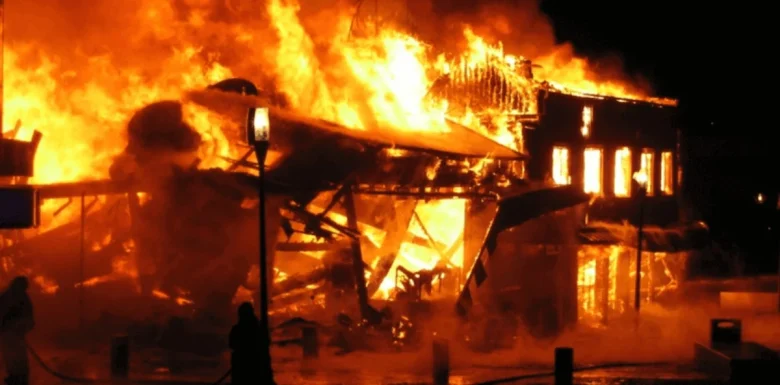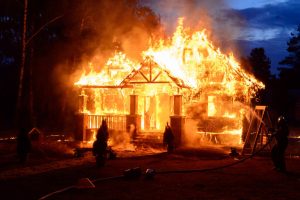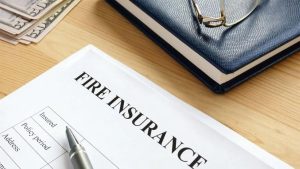You can use several methods to reduce your fire insurance premiums so that you can afford quality coverage. The installation of smoke detectors, burglar alarms, and deadbolt locks may mitigate risk for you and help you save on premiums.
Saving money by underinsuring your property is never a good idea. In wildfire-prone regions, having fire-resistant roofs and making defensible areas may be helpful.
Homeowners Insurance
Your Homeowner’s policy provides the “safety net” of coverage against fire, theft, weather damage and other common risks to both the house and personal possessions, as well as injuries to third parties on insured premises. Homeowners or prospective buyers would need to secure such a policy after defaulting on a mortgage loan. Existing homeowners seeking to maintain their property for investment purposes should consider maintaining an ongoing policy.
A variety of reasons can affect home insurance policy rates including your location, crime rate, and natural disasters. Your property’s age or systems such as plumbing, electrical, and HVAC combined with the type and amount of coverage you choose impact the value of your home.
As you choose a deductible, consider the out-of-pocket expense in the event of an accident. Keep in mind, however, that a deductible set too low can raise your monthly payments drastically.
Purchasing auto and home insurance from the same company may save you money, as will the installation of burglar alarms and security systems in your home. In addition, some insurance companies provide added coverage such as extended replacement cost protection and service line coverage which pays for the repair or replacement of damaged service lines that supply water, electricity, and gas to the residence.
Renters Insurance
Renters insurance is a type of property insurance designed for persons residing in single-family homes, townhouses, condos, or apartments that they do not own. It does protect now only personally owned property, but also provides some liability insurance.
Most renters policies include coverage for personal property which would pay to replace or repair lost or destroyed personal property, including furniture, electronics, household appliances, and even cooking utensils. Many standard policies include additional living expense coverage to cover the costs of hotels, temporary rentals, and meals when your home becomes uninhabitable due to a covered cause (such as fire).
Renter’s insurance usually has coverage for losses caused by fire, smoke, lightning, vandalism, theft and other incidents mentioned in the policy. Unfortunately, earthquakes and floods are excluded unless additional coverage is purchased, such as an endorsement policy that covers those specifically.
To determine how much coverage you need, you should take an inventory of your belongings and note the purchase price or current value of each item. This record will provide a summary of the estimated total value of your property. Some policies have replacement cost coverage while others provide actual cash value (ACV). Make sure you have a policy that provides adequate ACV protection; some policies have caps on the amounts they pay out for certain types of items like cash and jewelry.
Condo insurance
If you reside in a condominium community, it is likely that your association carries an insurance policy that covers the building’s structure and the common areas like lobbies and swimming pools. This will not help with personal belongings or the walls within the unit, however. Hence, having adequate condo insurance (also called an “HO-6 policy”) provides additional coverage which is not included in the master policies provided by the condo associations.
Condo owners have the opportunity to purchase detailed protection, often at more affordable rates compared to homeowner policies, which include coverage on the property as well as liability claims, loss of use, and additional living expenses.
Some features that may be optionally included are personal property replacement coverage, which provides protection at a property’s replacement cost rather than the actual cash value, as well as an inflation guard which increases the limits on both the dwelling and personal property coverage over time. Some other policies may include coverage for valuables such as jewelry, watches, furs, silverware, pewterware, computers, money, securities, and firearms.
Most insurance companies extend condo policies, and most offer incentives which help maintain affordable rates. You could be eligible for these incentives by having the necessary fire and burglar alarms, new roofing tiles, remaining claims-free over a certain period, and improving your credit, all of which could reduce the expense of the policy.
Mobile Home and Manufactured Home Insurance
If you reside in a mobile or manufactured home, you are entitled to your belongings protection from New York manufactured home insurance quotes. These policies provide specific coverage designed to pay for repair or replacement of factory-built structures like your home or shed, as well as theft and damage claims due to hailstorms and other covered events.
Manufactured home coverage is usually one comprehensive policy with two specific parts, which are referred to as Coverages A and B. Coverage A is the section that covers repairs made to your manufactured home after it has been damaged and Coverage B deals with other structures on your property such as fences and sheds that are in need of repairs. There is also liability coverage which further protects you financially should an injured party claim to have been hurt while on your property.
Consider saving on New York manufactured home insurance by installing qualifying safety features and increasing the deductible. Another way to implement these savings is by bundling with other policies from the same provider (auto, or even boat insurance) and paying the premium automatically or in advance. Aside from these strategies, consider the location as well; places that commonly have natural disasters typically have higher base premiums.




